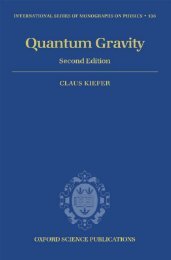Three Roads To Quantum Gravity
Three Roads To Quantum Gravity
Three Roads To Quantum Gravity
Create successful ePaper yourself
Turn your PDF publications into a flip-book with our unique Google optimized e-Paper software.
202 THREE ROADS TO QUANTUM GRAVITY<br />
values of the masses of the elementary particles and the<br />
strengths of the fundamental forces. One can estimate the<br />
probability that the constants in our standard theories of the<br />
elementary particles and cosmology would, were they chosen<br />
randomly, lead to a world with carbon chemistry. That<br />
probability is less than one part in 10 220 . But without carbon<br />
chemistry the universe would be much less likely to form<br />
large numbers of stars massive enough to become black holes,<br />
and life would be very unlikely to exist. This is evidence for<br />
some mechanism of self-organization, because what we mean<br />
by self-organization is a system that evolves from a more<br />
probable to a less probable con®guration. So the best argument<br />
we can give that such a mechanism has operated in the<br />
past must have two parts: ®rst, that the system be structured<br />
in some way that is enormously improbable; and second, that<br />
nothing acting from the outside could have imposed that<br />
organization on the system. In the case of our universe we are<br />
taking this second part as a principle. We then satisfy both<br />
parts of the argument, and are justi®ed in seeking mechanisms<br />
of self-organization to explain why the constants in the<br />
laws of nature have been chosen so improbably.<br />
But there is an even better piece of evidence for the same<br />
conclusion. It is right in front of us, and so familiar that it is<br />
dif®cult at ®rst to understand that it also is a structure of<br />
enormous improbability. This is space itself. The simple fact<br />
that the world consists of a three-dimensional space, which is<br />
almost Euclidean in its geometry, and which extends for huge<br />
distances on all sides, is itself an extraordinarily improbable<br />
circumstance. This may seem absurd, but this is only because<br />
we have become so mentally dependent on the Newtonian<br />
view of the world. For how probable the arrangement of the<br />
universe is cannot be answered a priori. Rather, it depends on<br />
the theory we have about what space is. In Newton's theory<br />
we posit that the world lives in an in®nite three-dimensional<br />
space. On this assumption, the probability of us perceiving a<br />
three-dimensional space around us, stretching in®nitely in all<br />
directions, is 1. But of course we know that space is not<br />
exactly Euclidean, only approximately so. On large scales<br />
space is curved because gravity bends light rays. Since this


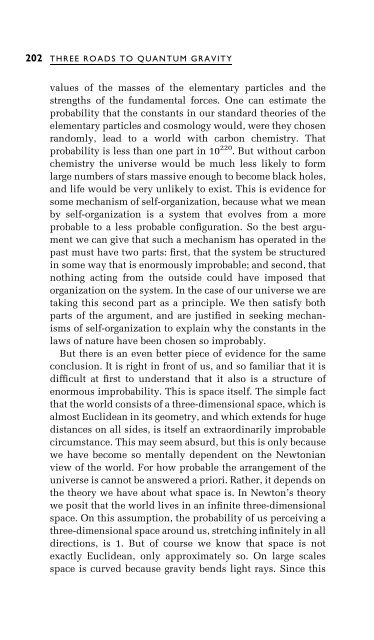
![arXiv:1001.0993v1 [hep-ph] 6 Jan 2010](https://img.yumpu.com/51282177/1/190x245/arxiv10010993v1-hep-ph-6-jan-2010.jpg?quality=85)
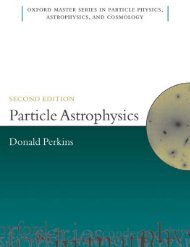
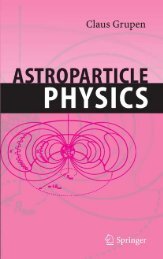
![arXiv:1008.3907v2 [astro-ph.CO] 1 Nov 2011](https://img.yumpu.com/48909562/1/190x245/arxiv10083907v2-astro-phco-1-nov-2011.jpg?quality=85)
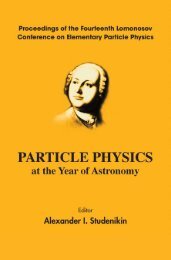
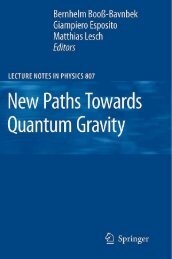
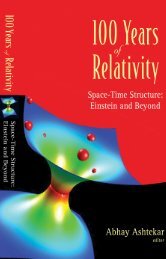
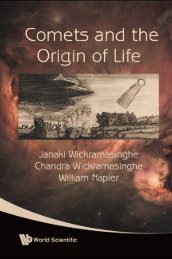
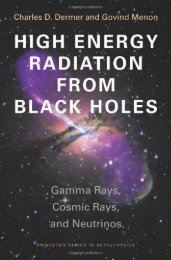
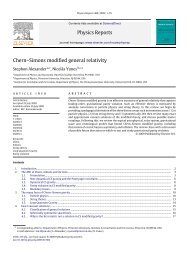
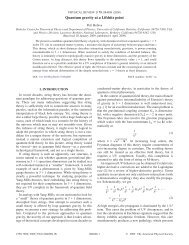
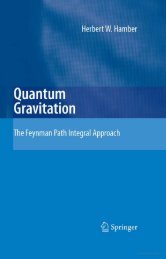
![arXiv:1002.4928v1 [gr-qc] 26 Feb 2010](https://img.yumpu.com/41209516/1/190x245/arxiv10024928v1-gr-qc-26-feb-2010.jpg?quality=85)
![arXiv:1206.2653v1 [astro-ph.CO] 12 Jun 2012](https://img.yumpu.com/39510078/1/190x245/arxiv12062653v1-astro-phco-12-jun-2012.jpg?quality=85)
